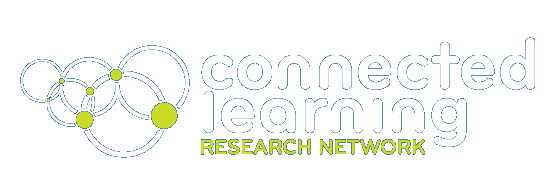Resources
Publications
Digital learning and participation among youth: critical reflections on future research priorities
BY: Livingstone
This article uses insights from media and communications research over recent decades to inform a critical analysis of the burgeoning multidisciplinary study of youthful digital engagement. The analysis first points to the systematic connections between mediatization and the problematic dimensions of consumerism, individualization, and globalization. Critiquing the popular rhetoric of the digital native, it then […]
Critical insights in European media literacy research and policy
BY: Livingstone
COST is an intergovernmental framework for European Cooperation in Science and Technology, enabling the coordination of nationally funded research at the European level. The Action “Transforming Audiences, Transforming Societies” (2010-2014) coordinates research efforts into the key transformations of European audiences and identifies their complex interrelationships within the social, cultural and political dimension of European societies. […]
Critical reflections on the benefits of ICT in education
BY: Livingstone
In both schools and homes, information and communication technologies (ICT) are widely seen as enhancing learning, this hope fuelling their rapid diffusion and adoption throughout developed societies. But they are not yet so embedded in the social practices of everyday life as to be taken for granted, with schools proving slower to change their lesson […]
Learning at Not-School
BY: Sefton-Green
Schools do not define education, and they are not the only institutions in which learning takes place. After-school programs, music lessons, Scouts, summer camps, on-the-job training, and home activities all offer out-of-school educational experiences. In Learning at Not-School, Julian Sefton-Green explores studies and scholarly research on out-of-school learning, investigating just what it is that is distinctive […]
Ethical dilemmas in qualitative research with youth on/offline
BY: Livingstone
Research on the digital and online environment poses several ethical questions that are new or, at least, newly pressing, especially in relation to youth. Established ethical practices require that research have integrity, quality, transparency, and impartiality. They also stipulate that risks to the researcher, institution, data, and participants should be anticipated and addressed. But difficulties […]
The participation paradigm in audience research
BY: Livingstone
As today’s media simultaneously converge and diverge, fusing and hybridizing across digital services and platforms, some researchers argue that audiences are dead-long live the user! But for others, it is the complex interweaving of continuities and changes that demands attention, especially now that audiencing has become a vital mode of engaging with all dimensions of […]
Children’s Rights Online: Challenges, Dilemmas and Emerging Directions
BY: Livingstone
Livingstone, S., and O’Neill, B. (2014) Children’s rights online: challenges, dilemmas and emerging directions. In van der Hof, S., van den Berg, B., and Schermer, B. (eds), Minding Minors Wandering the Web: Regulating Online Child Safety (pp.19-38). Berlin: Springer. Download the PDF
Media and information literacy policies in the UK
BY: Livingstone
This is a position paper on the capacity for media and information education in the UK in 2014 to facilitate media, digital and information literacy as defined by the European Commission (EC) and on the relationship between UK media/information education, regulation and law. Because the UK has a long tradition of media education within the […]
The mediatization of childhood and education: reflections on The Class
BY: Livingstone
At school, pedagogic and policy debates have seized upon the ubiquity of new digital devices and contents to speculate about changes far wider than the mere import of technologies into the classroom, transformations in the nature of learning and literacy, the relation between students and teacher, and the positioning of curricular knowledge and pedagogic practices […]
Fashioning Learning: Connected Learning through Fashion Design Programs
BY: Matt Rafalow
This analysis of Cali Design and Hive Fashion allows us to examine connected learning practices among youth in two environments that cater to an interest in fashion. It pushes us to appreciate how contexts may differently employ digital media to achieve important academically oriented outcomes, including skills with math, design, and teamwork, as well as technical skills with video […]










